Victoria & Abdul is both an entertaining and frustrating unofficial sequel to John Madden’s Mrs. Brown (1997), which took Judi Dench as the widowed Queen Victoria in the 1860s up to 1883. The cultural and class conflicts the lonely monarch was up against with her relatives and household when she warmed up to a Scottish commoner were nothing compared to those she stirred up when the Indian Muslim clerk Abdul Karim caught her attention. He went on to gain her confidence and appreciation until her death 14 years later. Although the film is based on Shrabani Basu’s research that mined for the first time Abdul’s diary and writing journals, the British point of view is portrayed vividly but the Indians’ too simplistically.
In the split opening sequences, irony abounds. At Queen Victoria’s 50th year on the throne, she is bored and reclusive. The only apparent pleasure the Empress of India has is eating—voraciously. In India, Abdul Karim (Ali Fazal) is selected to present a medal to the queen during her Golden Jubilee (1887) in London because he’s tall. His wide-eyed bowing and scraping to the British is contrasted with the pro-independence views of his astringent, and short, sidekick Mohammed (Adeel Akhtar).
Charmed by the duo’s exoticism, the queen orders them to remain as her decorative attendants, dressed in inauthentic turbans and costumes designed by the British. Soon she begins to promote Abdul again and again. In her own way, she wants to know more about the jewel in the crown of her empire that is too politically roiled for her to safely visit. Like all around her, she assumes Abdul is a “Hindoo” who speaks and writes “Hindustani.” She barely comprehends that he’s a Muslim who speaks and writes Urdu, even as he becomes her teacher and advisor, her personal Munshi.
Led gloriously by Dench, Stephen Frears directs a wonderful panoply of British actors portraying the elderly queen’s priggish and prejudiced family, courtiers, and prime minister. They gang up against Abdul as he’s a non-aristocrat (like Mr. Brown), but even more exaggeratedly, given that he’s also a foreigner, a Muslim, and a person of color. They constantly (repetitively) protest against the Indian’s influence.
Eddie Izzard is a nasty and jealous Bertie, Prince of Wales, who, as King Edward VII, tried to vanquish all evidence of the queen’s relationships he disapproved, first of Mr. Brown and then of the Indians at court. Michael Gambon, as her Prime Minister Lord Salisbury, stresses the political angles. The late Tim Pigott-Smith (the film includes a memorial dedication) is the queen’s resentful private secretary Sir Henry Ponsonby, and Olivia Williams, as Lady Churchill, plays a snobby composite of several ladies-in-waiting. Less familiar British actors fill out the suffocating atmosphere of condescension.
Unfortunately, Frears encouraged Ali Fazal, known in Bollywood for comedies, to act like the naif Peter Sellers from Hal Ashby’s Being There (1979), and Lee Hall’s adaptation of Shrabani Basu’s nonfiction book Victoria & Abdul: The True Story of the Queen’s Closest Confidant emphasizes minor incidents over substantive ones. The movie makes major contretemps of the queen’s claim of not knowing that her Munshi was married and her doctor’s declaration of why Abdul and his wife could have no children. However, these are inaccurate and insultingly infantilize Abdul (for the audience as much as for the household).
Additionally, the British attitudes could have been portrayed with more respect for Abdul’s cultural, social, and religious sophistication, and the film would have had more contemporary resonance by including Abdul’s canny lobbying for benefits for himself and his family back in India, as well as his embrace of Muslim leaders in England. His enemies used these friendships to try to frame him for fomenting terrorist efforts against the Hindu population and for independence. Abdul’s burkha-wrapped wife and mother-in-law are treated like comic relief; only the flabbergasted and the pompous are paired with these women, who were actually honored guests during Victoria’s lifetime.
The rebellious monarch shows somewhat more respect for India. For all her delight in learning to speak and to write Urdu, her commissioning Tartan woolen versions of her attendants’ native dress is both ridiculous and practical for the long stays in the Scottish Highlands. The movie does explain for armchair historians the background of the beautiful Indian-style addition to Osborne House on the Isle of Wight, the Dunbar Room, which is full of artifacts she commissioned from the subcontinent. Filming on-site makes for lovely and authentic scenery in the British Isles, while, tellingly, there are only brief glimpses of Abdul’s native environs, for a film that is attractive yet sadly shallow.


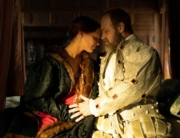
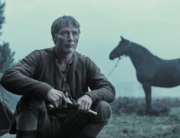
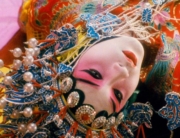
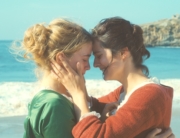
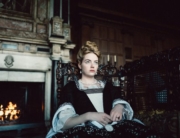










Leave A Comment